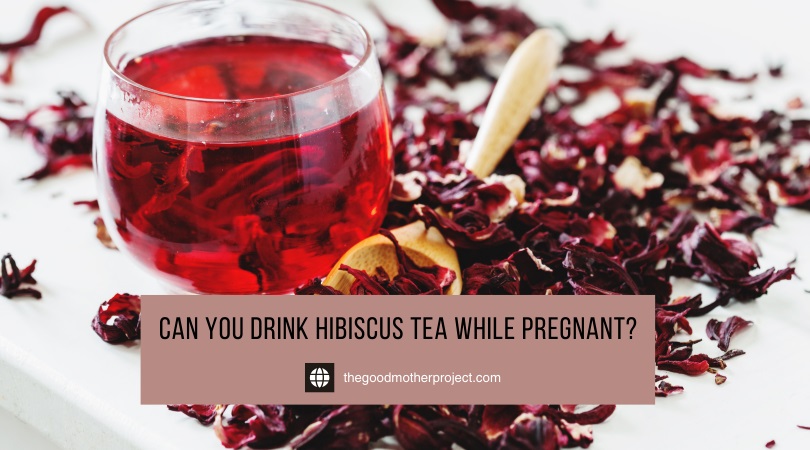Last Updated on January 6, 2025
Drinking hibiscus tea during pregnancy is generally not recommended. It may lead to potential risks such as uterine contractions.
Hibiscus tea is a popular herbal beverage known for its vibrant color and tangy flavor. Many enjoy it for its potential health benefits, including antioxidants and vitamin C. However, pregnant women often face strict dietary guidelines. It’s crucial to understand which herbs are safe during this time.
The concern with hibiscus tea lies in its ability to affect hormone levels and possibly stimulate uterine activity. This has raised questions about its safety for expectant mothers. Before making any dietary changes, consulting a healthcare provider is essential. They can offer personalized advice based on your health needs and pregnancy stage.
Exploring The Benefits Of Hibiscus Tea
Hibiscus tea offers various health benefits. Pregnant women often wonder about its safety. Understanding the advantages helps in making informed choices.
Rich In Antioxidants
Hibiscus tea is rich in antioxidants. Antioxidants fight free radicals in the body. These harmful substances can cause damage to cells.
Here are some key antioxidants found in hibiscus tea:
- Vitamin C: Boosts the immune system.
- Anthocyanins: Promote heart health.
- Flavonoids: Support overall wellness.
Consuming antioxidants during pregnancy can help protect the mother and baby. They may also reduce inflammation.
Blood Pressure Management
Hibiscus tea may help manage blood pressure. Some studies suggest it can lower high blood pressure. This effect is vital for pregnant women.
| Blood Pressure Level | Effect of Hibiscus Tea |
|---|---|
| High | May help lower levels |
| Normal | Supports maintenance |
Maintaining healthy blood pressure is crucial during pregnancy. It ensures better health for both mother and baby.
Concerns About Hibiscus Tea During Pregnancy
Pregnancy brings many changes. Pregnant women often question food and drink choices. One common concern is hibiscus tea. This herbal tea has potential risks. Understanding these risks is vital for expectant mothers.
Potential Hormonal Effects
Hibiscus tea may affect hormones. Some studies suggest it can alter estrogen levels. This change might impact pregnancy. Hormonal imbalances can lead to complications. Always consult a doctor before consuming hibiscus tea.
- Possible hormonal changes
- Risk of early labor
- Impact on fetal development
Impact On Blood Pressure
Hibiscus tea is known to lower blood pressure. This effect can be concerning during pregnancy. Low blood pressure can cause dizziness and fainting. Pregnant women need stable blood pressure for their health and the baby’s.
Here’s a quick look at blood pressure effects:
| Blood Pressure Level | Effect of Hibiscus Tea |
|---|---|
| Normal | May lower blood pressure further |
| Low | Increases risk of complications |
Monitor blood pressure closely. Discuss any concerns with a healthcare provider. Staying informed is key to a healthy pregnancy.
Guidelines For Safe Consumption
Pregnancy brings many changes. Expecting mothers must be cautious with what they consume. Hibiscus tea is popular but should be approached with care. Here are some essential guidelines for safe consumption.
Recommended Dosage
Moderation is key. Pregnant women should limit hibiscus tea intake. Experts suggest a maximum of:
| Type of Tea | Recommended Dosage |
|---|---|
| Hibiscus Tea | 1 cup daily |
This amount helps avoid any potential risks. Always listen to your body. Consult your doctor before trying new teas.
Alternative Safe Teas
Several herbal teas are safe during pregnancy. Consider these options:
- Ginger Tea: Alleviates nausea and aids digestion.
- Rooibos Tea: Caffeine-free and rich in antioxidants.
- Chamomile Tea: Calms anxiety and promotes sleep.
- Peppermint Tea: Eases digestive issues and headaches.
Always check for allergies. Discuss with your healthcare provider before trying new teas.
Frequently Asked Questions
Can Hibiscus Tea Affect Pregnancy?
Hibiscus tea can potentially lower blood pressure, which may not be safe during pregnancy.
Is Hibiscus Tea Safe In Early Pregnancy?
It’s best to avoid hibiscus tea in early pregnancy due to potential risks.
What Are The Benefits Of Hibiscus Tea?
Hibiscus tea is rich in antioxidants and may support heart health, but consult your doctor before use during pregnancy.
How Does Hibiscus Tea Impact Labor?
Some studies suggest hibiscus tea could stimulate menstruation, possibly affecting labor onset.
Can Hibiscus Tea Cause Miscarriage?
Limited studies indicate potential risks; consult your healthcare provider for personalized advice.
What Herbal Teas Are Safe During Pregnancy?
Safe options include ginger, peppermint, and rooibos teas. Always check with your healthcare provider before trying new teas.
Conclusion
Hibiscus tea can offer various health benefits. However, its safety during pregnancy remains uncertain. Always consult your healthcare provider before making dietary changes. Understanding potential risks is crucial for both you and your baby. Prioritize your health by making informed choices about what you consume during this important time.








